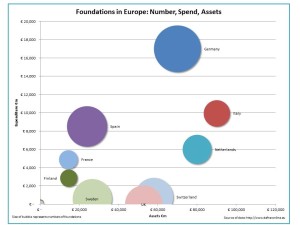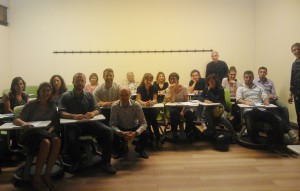The Colonel and the College
In December 2008, London School of Economics approached Saif Gaddafi, son of the Libyan leader Colonel Gaddafi, for a donation. On the 23rd June 2009, the governing Council of LSE agreed to accept a gift of £1.5m from a group of companies in Libya, channelled via the Gaddafi International Charity and Development Foundation, controlled by Saif Gaddafi. This story emerged in the media only after the uprising against the Gaddafi regime began, in February 2011.
LSE was attacked in the UK press for having accepted the gift and the controversy grew so severe that by March 2011 the Director of the LSE Sir Howard Davies resigned. The LSE Council later funded an independent enquiry led by Lord Woolf.
As Lord Woolf’s report makes clear, all this was in the historic context that at the time when the gift was being considered, Libya was being seen as a potential friend by the West. The UN Arms Embargo against Libya had been lifted in 2003 and the Bush administration had removed Libya from the list of countries that sponsor terrorism in 2007. The Colonel had been met by Tony Blair in an official visit in 2007; the then Prime Minister saw Gaddafi as a potential ally. In 2009, Libya was seen as eccentric but progressing steadily in the right direction.
But just two years later the Colonel had become a reputational risk for LSE. The School’s reputation had been damaged, and the Director’s neck was on the block.
This story illustrates many of the issues in due diligence and major donors:
The Speed of Change
It shows how fast reputations can change. Your celebrity donor today can tomorrow be vilified because he has been caught, literally, with his pants down. Due diligence today is useful, but it is only of any value if it is a continuous, reviewed process.
Complexity
It shows how hard it is to measure reputational risk where there is complexity. This gift was supposed to come from a consortium of companies, in a country in which little or no corporate transparency exists, channelled via a foundation led by the son of a dictator. Complexity makes due diligence difficult. But major donors often lead complex lives and make gifts via complex structures.
Just what are we measuring?
What, in the case of the Colonel, was LSE supposed to be measuring with its due diligence work? The Colonel’s reputation with the politicians? His son’s reputation? The ways in which his wealth had been accumulated? Clarity in understanding what we are attempting to measure is a key part of due diligence work.
So, what is Due Diligence?
Due diligence is used in the context of “doing a thorough job of checking a prospect.” Up to now most of the focus in due diligence work has been on companies. But fundraisers are now asking for due diligence research on individual philanthropists, wherever there is a concern that reputations or finance could be at stake, or where there is a moral issue to untangle.
What can we check?
1. Is he who he says he is?
At Factary we were asked this recently. A man who said he was a Vicomte had been in contact with the nonprofit and there was talk of a very large gift, possibly into the millions. The nonprofit had started to cultivate the relationship with meetings and social events. The nonprofit’s in-house researcher was suspicious and asked us to carry out a due diligence check. It was difficult because he had covered his tracks well, but eventually we demonstrated that he was definitely not a Vicomte, definitely not French, and that lived in a very small house in Peckham. There were hints that he had done this kind of thing before, although no public reports of convictions. We reported our findings to the nonprofit who stepped away from the relationship.
Proving that a person is the person that they claim to be is difficult – you don’t normally ask potential donors for their passport or ID card – but it’s an essential part of due diligence.
2. Is there money, really?
Does she have the money – a key question for fundraisers – should also form part of a due diligence process, just as it would if you were a business and about to take on a new customer. This means researching wealth and income, shareholdings and properties.
3. The Source of the Money
The origins of the funds to be donated are researchable…in some cases. There are geographic limitations (I have tried, and failed, to identify the source of wealth of certain Russian oligarchs) and there are historic limitations (how far back do you really want to go? The source of her money? Or of her grandmother’s fortune?).
4. Criminal convictions
Due diligence research can reveal criminal convictions where these are recorded in the public domain. But some of this is of limited value. In Spain, for example, a common search will list the overdue parking fines of Spanish citizens – hardly the basis for “reputational risk.”
5. Reputation
This is the slippery, difficult-to-define word of the due diligence researcher. We can research reputation in the press and media (but is that not a very biased source?), we can research the circle of contacts that a prospect moves amongst, and we can ask people-who-know-people for their opinions.
The focus of reputation should be trustworthiness – the perception in the public mind that your organisation can be trusted. Your objective is to maintain and enhance your organisation’s trustworthiness. So reputational risk means; “If we link up with this donor, could this damage the public perception that we can be trusted?”
Can we Check Everything?
There is much about donors that we cannot check. Thankfully, most of us have lives that are private.
We can’t check on money held in banks – it’s private. We mostly can’t check wealth held through private trusts, or wealth held in certain jurisdictions (try the Netherlands Antilles, for example…) We can’t tell whether someone’s secret sexual activities will, tomorrow, be the subject of long-lens photo-“journalism” or of a kiss-and-tell story in the yellow press.
Ethical and Legal
There are ethical and legal frontiers too:
You are simply not allowed to store defamatory material on people. So how are you going to record the (reputational risk-related rumour) that he was a diamond smuggler in his youth?
Nor can you store information on sexuality, health or religion. Any of these could, in some organisations, imply a reputational risk.
Researcher ethics
Those of us in prospect research live with clear ethical guidelines (see the Association of Professional Researchers for Advancement). For me, for example, this means that I am not willing to use private detectives or false “survey calls” to source information on philanthropic prospects. The first is too intrusive and the second is, simply, lying.
Real-Life Issues
In real-life fundraising we face other issues. For example, if the Director General says we should accept the money, what do we do? Do we stick to our agreed due-diligence procedure? Or does the DG’s political power mean that we take the money despite our concerns?
Other organisations question the whole moral basis of this type of research: “We don’t do due diligence on our normal consumer donors, so why do it with strategic or major donors?”
The debate starts here
There are no perfectly satisfactory answers to these questions. But we were in the same place over the issues that arose from starting prospect research 20 years ago.
In time we will together build the protocols and sector norms that we need to enable us to do a good job of being duly diligent. Now, we need the debate.
Factary provides due diligence research for clients. For more information contact Nicola Williams, Research Manager, nicolaw@factary.com
Factary’s Chris Carnie will be running a workshop on Due Diligence and Major Donors at next week’s International Fundraising Congress Noordwijkerhout, Netherlands.
This is a slightly extended version of a piece that first appeared in http://101fundraising.org


